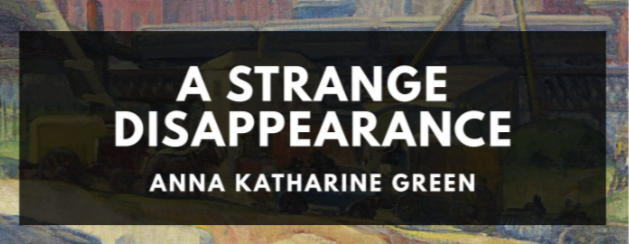CHAPTER XX — A Strange Disappearance
byCHAPTER XX – A Strange Disappearance captures a moment of profound emotional reckoning where hearts confront the weight of past wounds and future hopes. Set within a mansion alive with secrets, the chapter unfolds quietly yet intensely, with each character pulled by unseen threads of duty, affection, and principle. In this deeply moving scene, the reader is invited not just to witness decisions being made but to feel the cost and courage behind them. The story reaches far beyond its romantic surface, pulling forward questions of loyalty, autonomy, and what truly defines a home—bloodlines or bonds freely chosen.
Mr. Blake, with a mixture of pleading and hope, turns to Luttra not as a suitor but as a soul seeking completeness. His words are carefully placed, driven not by pride but by longing, as he implores her not to remove herself from the life they could share. Luttra, composed yet visibly conflicted, stands at a crossroads between what is expected and what is right for her. The tension in their dialogue echoes a truth: some choices cannot be made with ease, especially when history has already left its scars. Mrs. Daniels, observing from the side, steps forward with a presence both gentle and assertive. Her loyalty to the Blake family pushes her to intervene—not with pressure, but with a revelation meant to change everything. What she carries is more than a message; it is a legacy waiting to be acknowledged.
The will Mrs. Daniels presents, hidden away in an heirloom box, becomes the axis on which their futures begin to spin. Written by Mr. Blake’s late father, the document outlines a future imagined by a man no longer alive but still reaching out through paper and ink. Its contents are bold: Luttra, not Mr. Blake, is to inherit the fortune—a twist that shifts the balance of not just power but perspective. Reactions come in waves. The Countess de Mirac, with her aristocratic poise, sees it as validation that Luttra belongs among them. Mr. Blake is stunned into silence, not because of the wealth he loses, but because of the truth it reveals. Yet it is Luttra who controls the tempo, her calm voice carrying more weight than all others combined.
In a moment that will be remembered, Luttra makes her choice. The will, rich with potential, is dismissed with a simple act: she tears it in two, her eyes steady and unwavering. The gesture is symbolic, rejecting material gain in favor of something priceless—mutual respect and unforced connection. Her love, she declares, is not for sale, and her presence in the Blake household will never be owed to financial leverage. This clarity redefines the foundation of their relationship. No longer is it built on obligations or secrets, but on shared vulnerability and honest affection. Mr. Blake, moved beyond words, finds himself not triumphant, but grateful—grateful that Luttra chose him, not as a beneficiary, but as a partner.
The wedding that follows feels less like a victory and more like a quiet exhale after a long-held breath. The Countess hosts the ceremony with understated grace, her earlier firm stance softened by joy. Guests, unaware of the storm behind the calm, watch as two people begin a new chapter without burdens. Luttra’s choice not only reshapes her own destiny but redefines what it means to belong in a world often dictated by lineage and wealth. Readers are reminded that true love is rarely loud—it is deliberate, clear, and willing to stand against convention. The celebration, though adorned with elegance, is grounded in something deeper: the peace of being understood and accepted.
This chapter enriches the narrative’s core by showing how decisions shaped by emotion rather than entitlement hold more lasting power. It also teaches readers that love, to be genuine, must be free from pressure, whether social, financial, or familial. Even in an era when inheritance often defined a person’s worth, Luttra reclaims her agency. That lesson remains strikingly relevant today. In real-life relationships and family matters, choosing integrity over influence, and love over leverage, remains the path less traveled but more fulfilling. Through Luttra’s courage and Mr. Blake’s humility, the story delivers not just a conclusion—but a timeless reminder.

